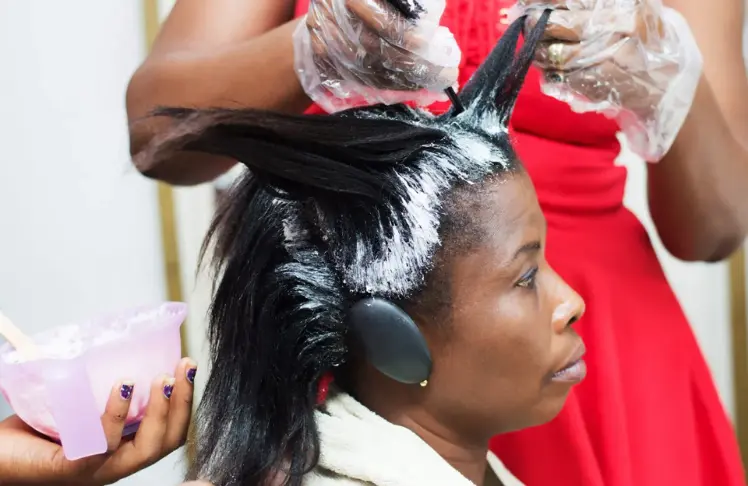
The U.S. Food and Drug Administration (FDA) proposed a ban on hair-straightening and smoothing products that contain cancer-causing chemicals. Black women, who are historic consumers of the hair “relaxers,” may benefit most from the new rule if it’s adopted.
The ban forbids the use of formaldehyde and other formaldehyde-releasing chemicals in the products. Formaldehyde is a colorless, flammable gas used in a variety of household products, including detergents and cosmetics, according to the Centers for Disease Control and Prevention.
The gas is highly toxic and irritable to the eyes, skin, lungs, and throat — even in small amounts. Repeated exposure has been linked to long-term adverse health effects, including myeloid leukemia, a rare blood cancer.
Before the proposed rule can become official, the FDA listens to public comments and then decides to “end the rulemaking process, to issue a new proposed rule, or to issue a final rule,” the agency wrote on its website.
Black Women and Cancer
Recent research has linked relaxers to various cancers in women.
A study published in October 2022 by the National Institutes of Health examined usage among 33,947 women. Researchers found that women who applied the products to their hair were two times more likely to have uterine cancer than women who didn’t. For women who used chemical hair straighteners more than four times a year, the risk was even greater.
Nearly 60% of the women who reported using relaxers in the past year were Black. Black women are more likely than white women to receive a breast, ovarian, or uterine cancer diagnosis at an advanced stage and are less likely to receive treatment or survive.
“Hair products may contain hazardous chemicals with endocrine-disrupting and carcinogenic properties,” the authors wrote. “Previous studies have found hair product use to be associated with a higher risk of hormone-sensitive cancers including breast and ovarian cancer.”
Black women have long raised concerns about possible links between chemical hair straighteners and cancer rates among them. Only now is science confirming their theories. With data backing their claims, many are pursuing lawsuits against companies who make the products.
Congress Calls for an Investigation
The FDA’s proposed ban comes months after Reps. Ayanna Pressley, (D-Massachusetts), and Shontel Brown, (D-Ohio), penned an open letter in March to the agency requesting an investigation into chemical hair straighteners. Pressley and Brown noted that Black women are pressured to opt-in to the products due to an anti-Black beauty standard in America.
“As a result of anti-Black hair sentiment, Black women have been unfairly subjected to scrutiny and forced to navigate the extreme politicization of hair. Hence, generations of Black women have adapted by straightening hair in an attempt to achieve social and economic advancement,” they wrote. “Manufacturers of chemical straighteners have gained enormous profits, but recent findings unveil potentially significant negative health consequences associated with these products.”
Researchers found that women who applied the products to their hair were two times more likely to have uterine cancer than women who didn’t.
Pressley, who previously combatted hair discrimination through the CROWN Act, says the FDA’s proposal is a win for Black women’s health. “Regardless of how we wear our hair, we should be allowed to show up in the world without putting our health at risk,” she said in a statement.
Brown is committed to helping the proposal become an official rule. “We must ensure the products American consumers buy and use are safe, and I look forward to working with my colleagues and the Administration to implement this proposed rule,” she said.















